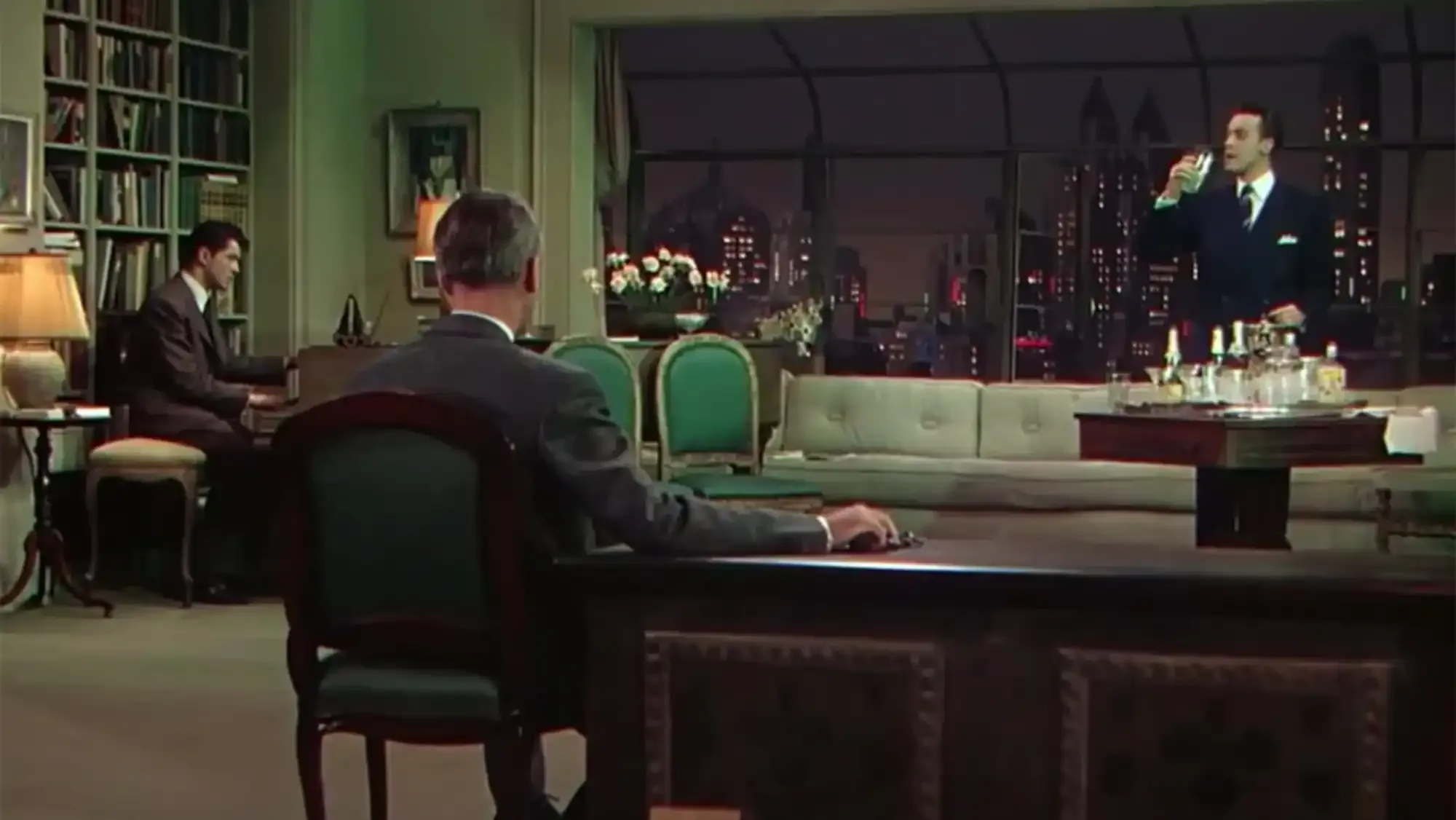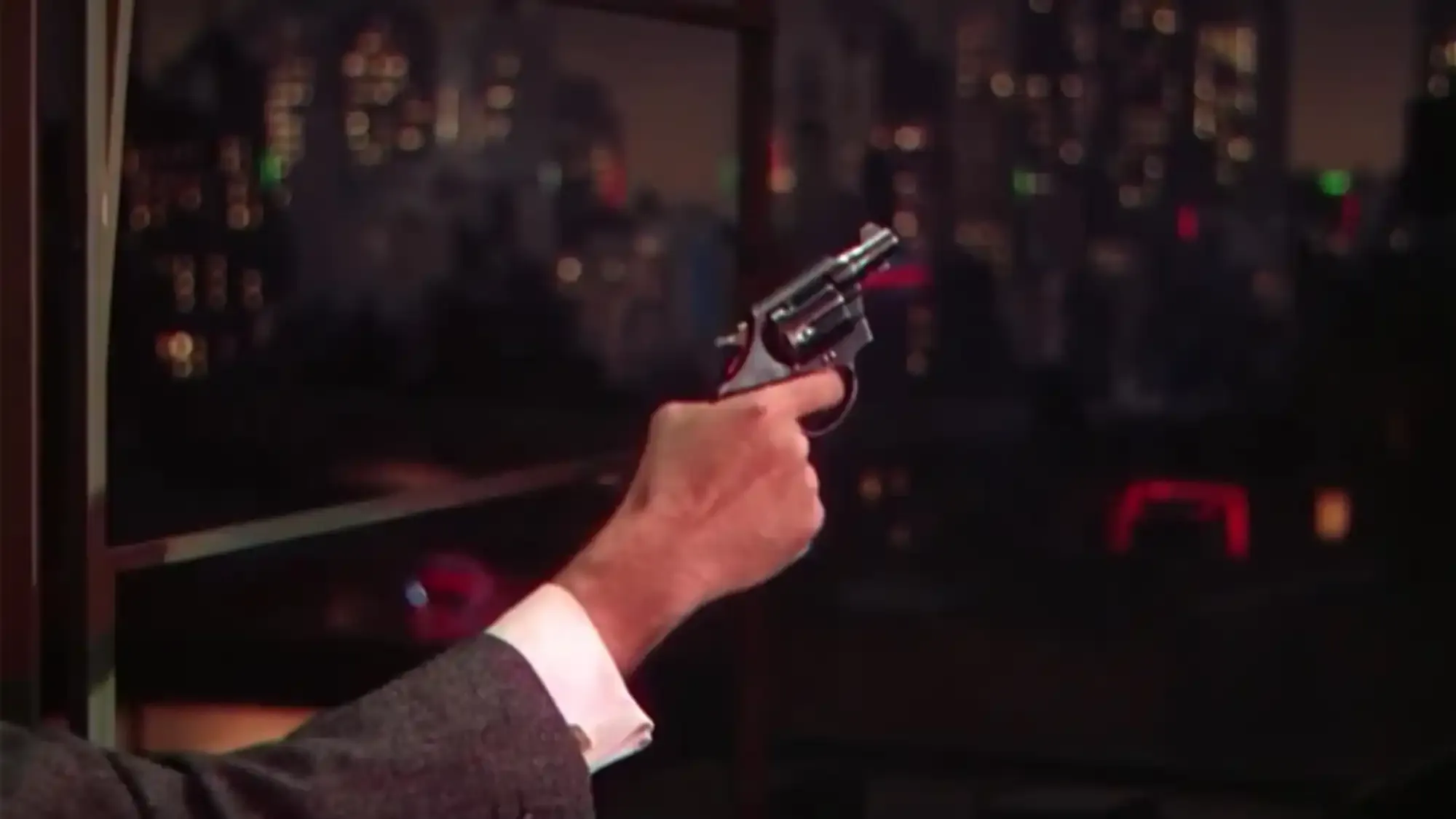"A Taut Cinematic Experiment: Hitchcock`s `Rope` Tightens the Noose"
Posted Friday, Dec 01, 2023 137
Alfred Hitchcock`s 1948 film `Rope` is a daring exercise in suspense and a study in moral complicity. The story unwinds in real time, presenting two intellectually conceited young men, Brandon (John Dall) and Phillip (Farley Granger), who murder their classmate as an expression of their supposed superiority. They host a dinner party immediately after, serving food from a chest containing the body. The tension intensifies with the arrival of their former schoolmaster, Rupert Cadell (James Stewart), whose probing questions and growing suspicions add to the mounting pressure.
`Rope` explores themes of Nietzschean philosophy, the human psyche`s darker recesses, and the thrill of the crime as an intellectual exercise. The tone is claustrophobic and foreboding, with Hitchcock`s masterful use of confined space intensifying the sensation of impending revelation.
John Dall and Farley Granger deliver chilling performances as the coldly calculated Brandon and the increasingly nervous Phillip. James Stewart, against type, offers a compelling turn as Rupert, subtly shifting from social conviviality to a piercing inquisitor as the moral gravity of the evening unfolds.
Hitchcock`s direction is precise and ingenious, famed for the use of long takes and limited cuts to create the illusion of a single continuous shot. This technique serves the story`s tension, as the camera maneuvers within the set`s confines, capturing the intimate breadth of the crime and its aftermath.

The score by David Buttolph is understated yet effective, sparingly used to accentuate pivotal moments of tension as the evening progresses towards its climax, aligning with the film`s nuanced exploration of guilt and culpability.
Cinematographer Joseph A. Valentine skillfully navigates the one-set location, his camera work a character in its own right as it weaves among the party guests, heightening the suspense as each movement inches closer to the chest`s macabre contents.
The film`s meticulous production design contributes an upper-class elegance to the setting, creating an environment that accentuates the chilling dissonance between the urbane social gathering and the heinous act central to the plot.
While `Rope` isn`t a showcase for conventional special effects, Hitchcock’s experimental approach to visual storytelling and editing is a pioneering effect unto itself, setting a precedent for cinematic innovation.

The editing disguises the few cuts in the film, adhering to Hitchcock`s vision of a seamless experience that keeps the viewer both rapt and complicit, an unseen participant in the grisly charade of wit and will.
The film`s pacing is relentlessly intimate, capturing the real-time unraveling of the protagonists` psychological facade, as the minutes tick by with methodical inevitability towards the narrative`s morally charged resolution.
The script is sharp, with dialogue that layers each sociable exchange with double meanings and wry philosophical musings, illuminating character intentions and advancing the story’s tense atmosphere.
Some critics may argue that `Rope` feels like a high-concept stage play confined to the screen, and the experiment in long takes may, at times, limit dynamic action. Furthermore, the film’s exploration of controversial topics might not delve as deeply into character motivators as contemporary audiences could desire.
As a film critic, `Rope` endures as a fascinating piece of Hitchcock’s oeuvre and cinematic history—a crisp, tension-filled thriller that makes a spectacle of subtlety and crafts suspense not from what is shown, but from what is hidden in plain sight.